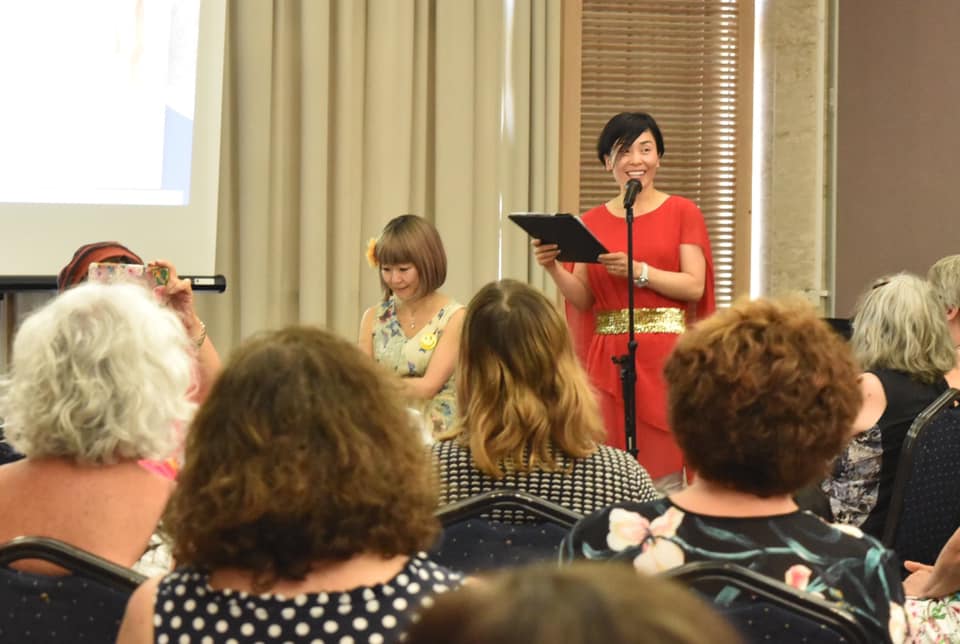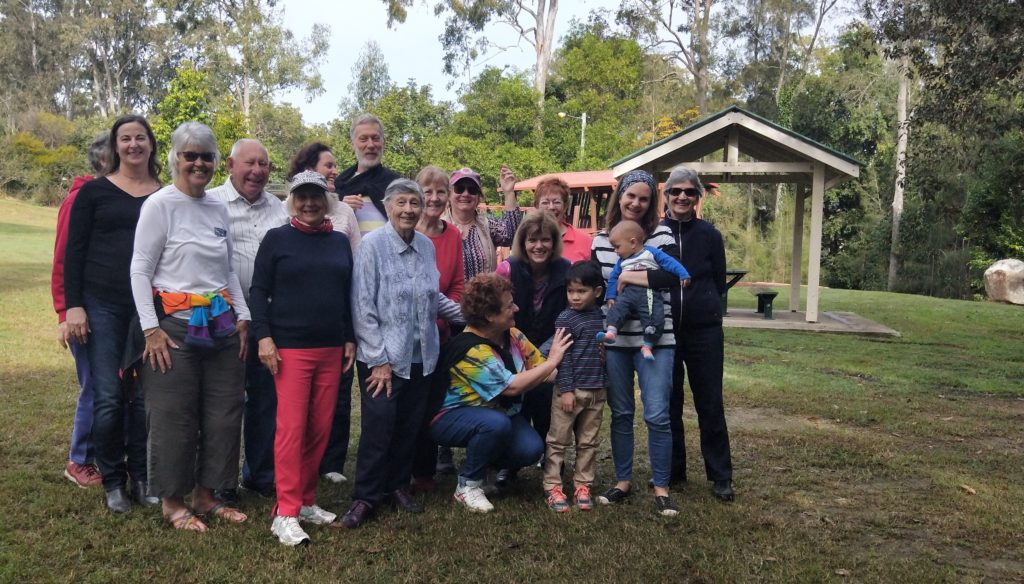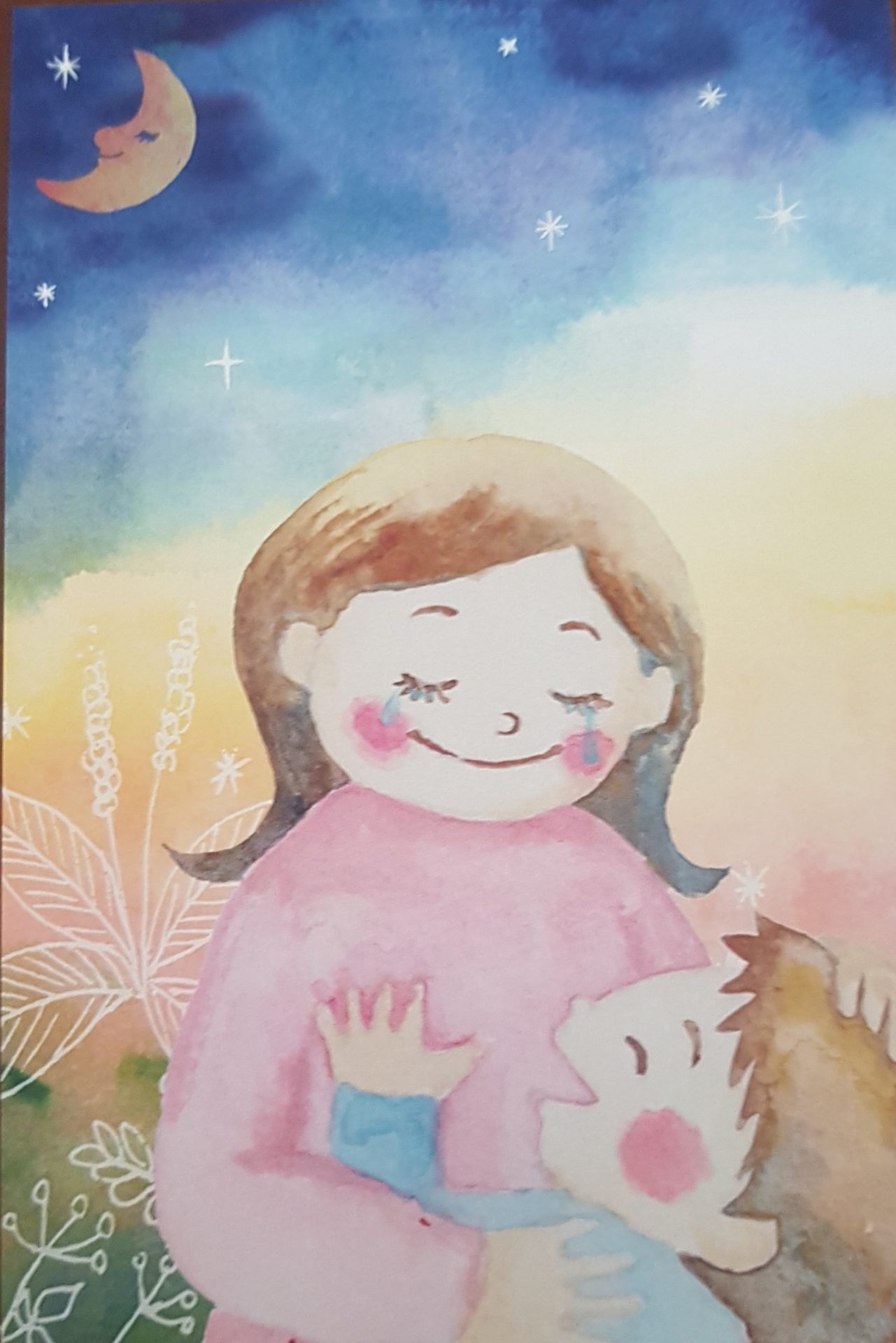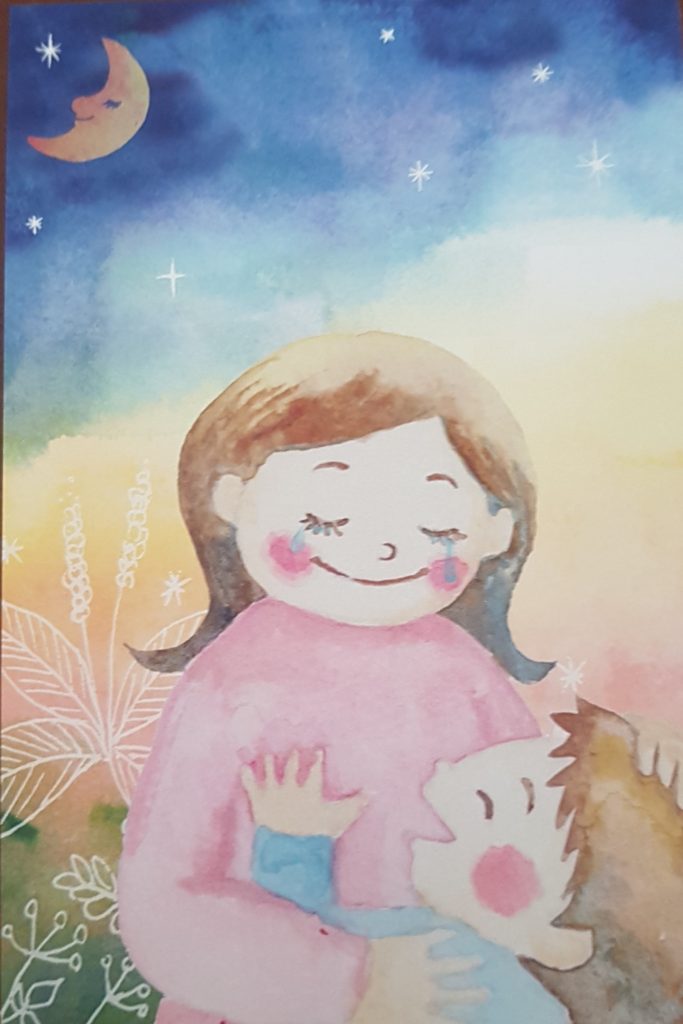At the recent 14th national laughter conference on Australia’s Gold Coast, Japanese author, former kindergarten teacher and mother of three Shiho Sato read a story.

Japanese author Shiho Sato reads from her book about overcoming post-natal depression through laughter yoga
To read it in English was accomplishment alone as Shiho doesn’t speak English, yet had practised the translated version diligently for three months to present it in her own voice.
The true feat was the bravery Shiho showed in sharing a really hard, true story—how she suffered post-natal depression after the birth of her first child (now a teenager) and overcame that dark time when she learned laughter yoga.
What is post-natal depression?
Post-natal depression is a very common problem: in Australia up to one in seven mums experience it to some degree after the birth of their baby. Why isn’t clearly known: there may be a biological vulnerability, the woman’s body is flushed with hormones, a lack of sleep may be part of it, and then there are all the social and financial adjustments that can come with a new phase of life…
How laughter yoga helped Shiho Sato
In Shiho’s story, a little boy’s mother gets upset all the time and the little boy thinks everything he does is wrong. He wanders off into the woods where animals befriend him an show him how to laugh at mistakes, lessons he then takes back to his mother.
Laughter yoga does indeed encourage us to look at life’s challenges through a different lens, to laugh at ourselves and to take ourselves less seriously.
Shiho Sato’s book is beautiful, in its message and its artistry. Currently published only in Japanese (available for purchase on Amazon), I hope it is republished in English. It would benefit so many new mothers.
Meantime, perhaps, Australian mums (and dads) feeling the challenge of parenting and losing their ability to laugh off the spilt milk (as an example), may find some relief at a laughter club, supported socially to laugh without jokes and to access the feelgood hormones that a good dose of laughter can bring.
If you or someone you know has symptoms of post-natal depression, please talk with a GP or child health nurse rather than toughing it out alone. Help is available in many forms.

Laughter clubs like this one at The Gap in Brisbane offer social support to participants of all ages.

